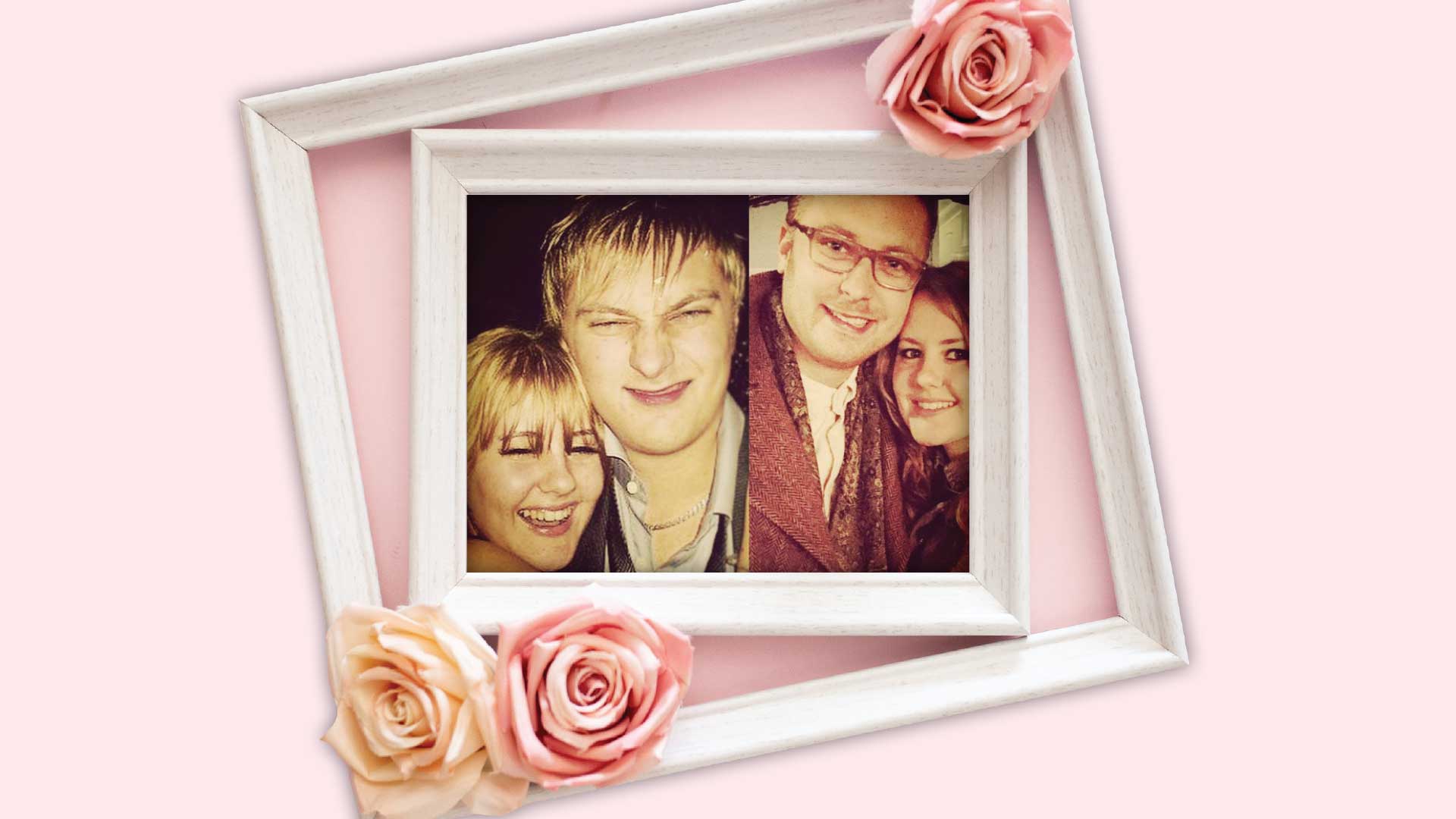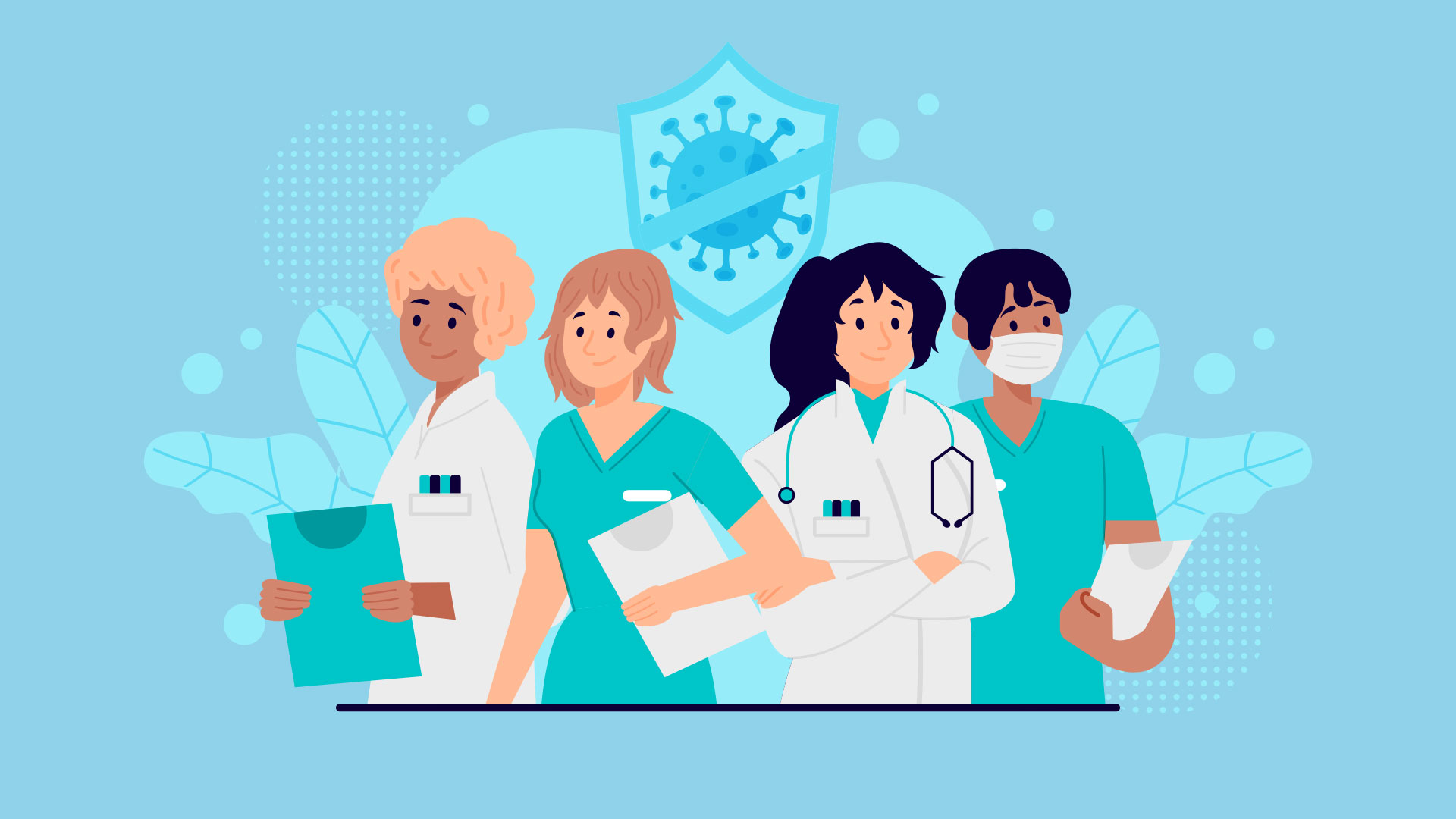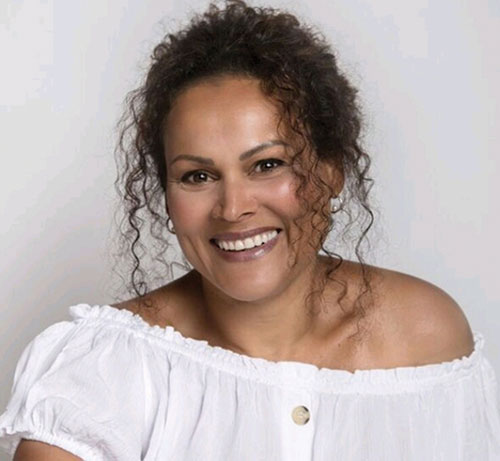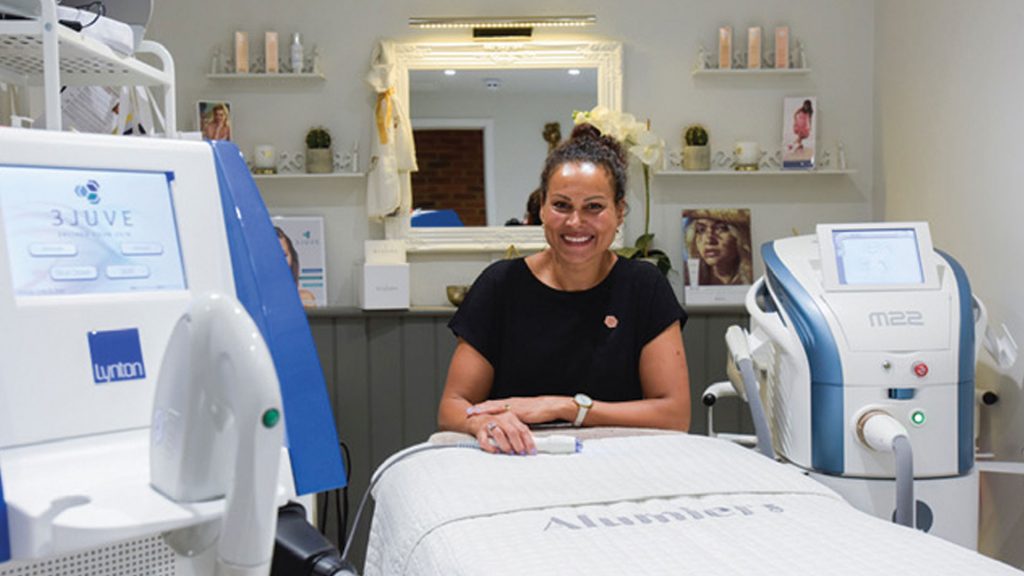A Reunion Romance
Reconnecting with people we have had a previous connection with can be complex, fascinating but can ultimately provide clues as to why the friendship or personal relationship did not continue. However, for others, discovering each other again can prove not only a positive experience but a momentous one.
Two individuals who found each other again and created a life together are Florence and Ashley, both 32 years old. They live in Surrey with their cat Nala. Florence describes here how they reconnected.
“I am a PR & Events Manager at a Charity and my husband is a Primary School teacher in Putney and is the creator of The Shed School. I’ve always been a believer in fate and we actually had a fluke moment where we bumped into each other in Edinburgh. I’d driven to Scotland with a group of friends to watch various shows and see my boyfriend and Ashley had gone to stay with a friend who lived there. I remember walking with my friend into the Pleasance Theatre and seeing Ashley and my stomach somersaulted. It was so bizarre as we’d had various conversations via Snapchat but not really met up or taken it further because I was unavailable. We spent a lot of time together in Edinburgh, which was lovely, but we were both aware I had a boyfriend, which made it tricky. We went our separate ways after that and lost touch for quite a bit of time as Ashley landed the lead role in the Theatre tour version of Cat in the Hat. It wasn’t until a year later we picked back up when he moved to London and I was single.
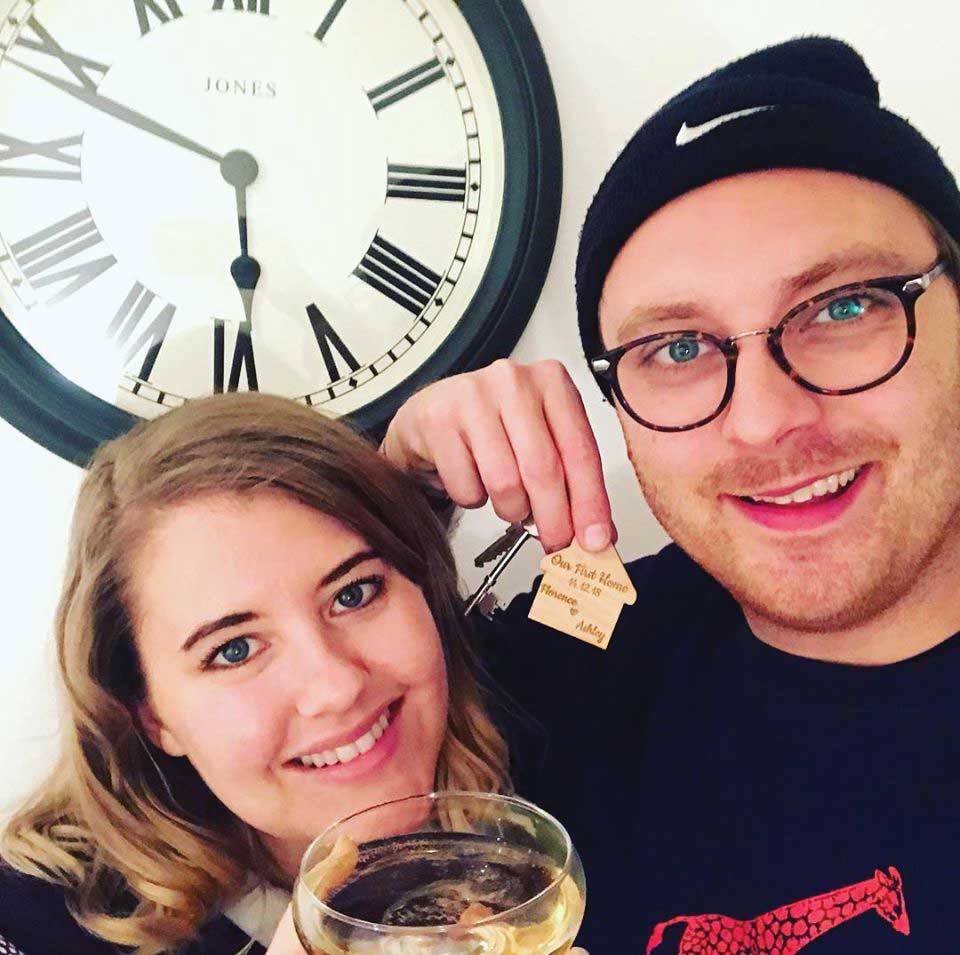
We first met at Bath Spa University in 2006, as we were on the same Performing Arts course. We were always friends and liked one another but grew closer in our third year when we were both in the same show, ‘The Importance of being Earnest’ by Oscar Wilde, which was our final performance. However, we were both in relationships throughout University, so never really had the opportunity to see if there was anything there. We were also very different people back at University and both had different experiences, and part of me feels we wouldn’t have been compatible even if we had given a relationship a go then.
After University we went our separate ways and lost touch over the years. However, we would always reconnect every now and then, whether it was a drink here or a message there. We then weirdly reconnected officially over Snapchat back in 2013. Ashley was touring across the UK and would send me quirky pictures in his costume that would always make me smile. I began sending funny pictures back, which opened up a conversation between the two of us. This went on for about a year, but we never took it anywhere as I was in a relationship and Ashley was still touring.
After about a year of Snapchatting, we decided to finally meet up. Ashley had moved to London and I was single. The time was finally right for the two us. We had drinks on the Southbank in September 2014 and talked for hours. Ashley always says that when he looks back on our first date that he felt like he was meeting a completely new person, unlike the girl he remembered. I was quite cautious about us at the beginning. I had just come out of a tricky relationship where I had been kept secret for most of it. So suddenly being with someone who wanted me to meet his family and friends and move in with him was overwhelming. However, it did just feel right, so as soon as I let go of the anxieties I had felt in my previous relationship, I was able to commit fully to Ashley. It was this point I think we both knew we were meant to be together.
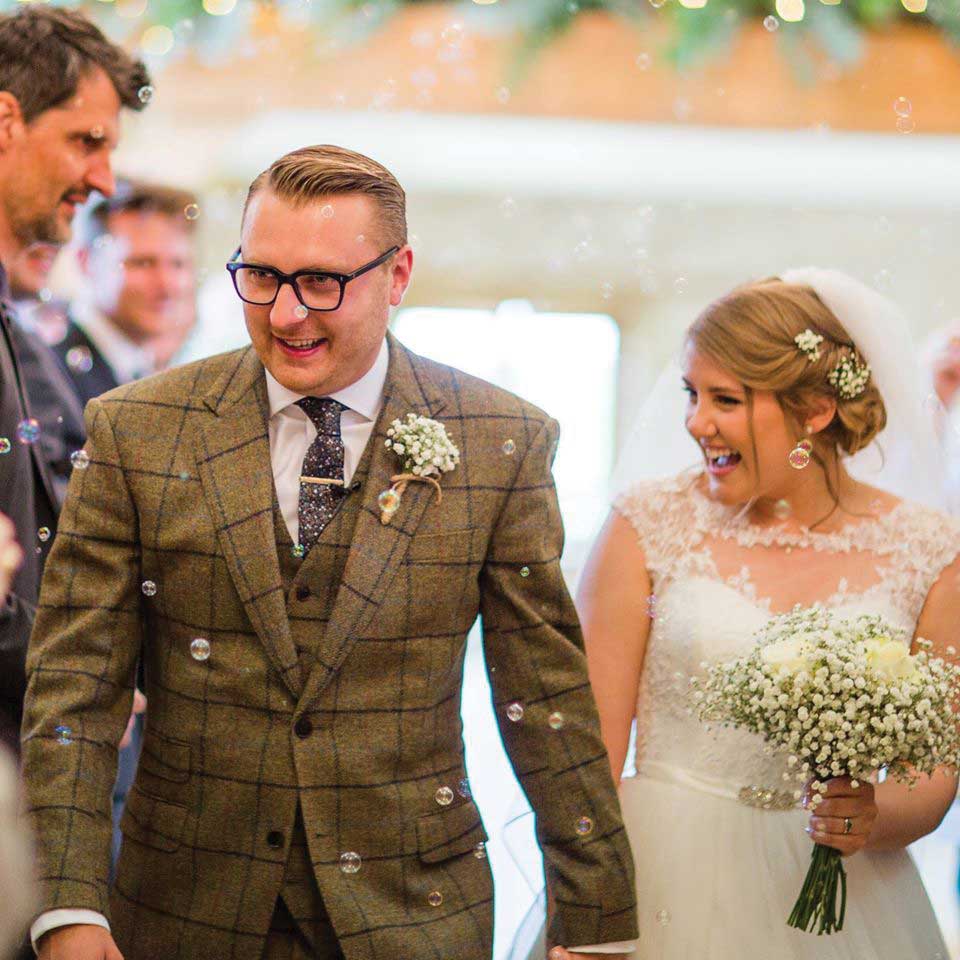
Everything moved quite quickly from this point. Both our families thoroughly approved of our relationship choice (finally) and Ashley and I were incredibly happy. We moved in together and Ashley decided to pursue a career in teaching so we could start building a proper life together., Ashley and I had different experiences in Bath. I really enjoyed the course we had chosen and the friendship circle I was in, but Ashley struggled. I was sad when I discovered the negative connotations he had with Bath because that’s the City that brought us together. However, Ashley proved to me that his time in Bath was fully worth it by taking me for a weekend away there and proposing to me in front of the Bath Abbey in February 2018. We bought our first home the following December and married last May in Tetbury.
We have been together nearly 6 years and just celebrated our first wedding anniversary in lockdown. It’s strange because there is nothing that should have really kept us in each other’s lives, post University. We still swam in different ponds and pursued different careers, we even maintained different friendship groups from the ones we had made back at Bath Spa. So, it was obviously always meant to be for us, we just needed the time to be finally right.
Ashley will be running FREE Maths and English lessons, live from 13th July – 21st August 2020. http://www.theshedschool.co.uk

